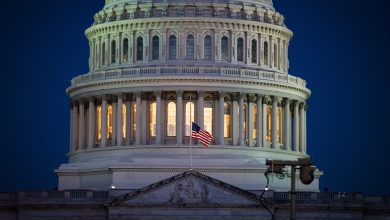Nursing Reportedly Will No Longer Be Considered A Professional Degree By Department Of Education – AfroTech


The Department of Education has updated its qualifications for professional and graduate degrees.
According to the Association of American Universities, the Department of Education under Trump’s “One Big Beautiful Bill” (H.R.1) has made changes that will impact student loan borrowers. It has imposed a $100,000 lifetime cap on borrowing for graduate students, who can take out loans of no more than $20,500 per year, while professional students have a $200,000 lifetime cap and cannot borrow more than $50,000.
Additionally, the Department of Education has dismantled the Grad PLUS loan program. According to Federal Student Aid, borrowers used the loan for “education expenses not covered by other financial aid.”
The Department has also shifted the goal post for what constitutes a professional degree program. It classifies medicine, pharmacy, dentistry, optometry, law, veterinary medicine, osteopathic medicine, podiatry, chiropractic, theology, and clinical psychology as professional degree programs. Still, it excludes physician assistants, physical therapists, audiologists, nurse practitioners, architects, and social workers, among others.
Newsweek reports that this will affect more than 260,000 students currently enrolled in bachelor’s degree nursing programs and the estimated 42,000 enrolled in associate’s degree nursing programs.
“There is no question that this is a gut punch for nursing,” said Patricia (Polly) Pittman, a professor of health policy and management and director of the Fitzhugh Mullan Institute for Health Workforce Equity at George Washington University, per Newsweek. “It is unconscionable that in a period when government should be focused on finding ways to retain licensed nurses in the field, the cap on loans represents a major barrier to continued education. Education, including from [Licensed Practice Nurse (LPN)] to ADN to BSN, and then beyond to become an advanced practice nurse, is the single best way to retain nurses, especially in rural and underserved communities. At a symbolic level, it is also deeply insulting to nurses who have fought so hard to be recognized for their critical contributions to health care.”
Department of Education press secretary for higher education, Ellen Keast, commented to the outlet:
“The Department has had a consistent definition of what constitutes a professional degree for decades and the consensus-based language aligns with this historical precedent. The committee, which included institutions of higher education, agreed on the definition that we will put forward in a proposed rule. We’re not surprised that some institutions are crying wolf over regulations that never existed because their unlimited tuition ride on the taxpayer dime is over.”




